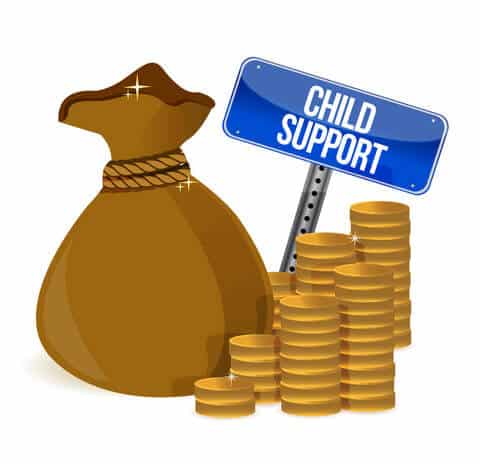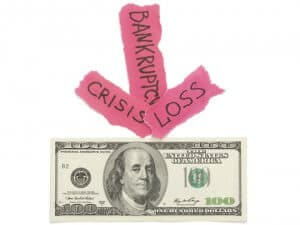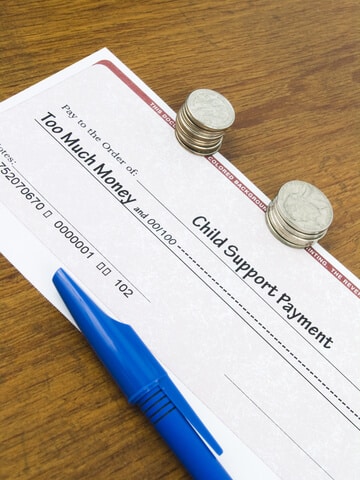by Robert E. Hornberger, Esq | Jul 8, 2014
 The legalization of Same-Sex Marriages in New York has far-reaching implications for Long Island couples who have children in these marriages, particularly with regards to death, divorce and child support. While both spouses cannot be biological parents of the child or children of the marriage, should the non-biological parent/s and children born during that marriage be afforded the same legal protections opposite-sex spouses have enjoyed?
The legalization of Same-Sex Marriages in New York has far-reaching implications for Long Island couples who have children in these marriages, particularly with regards to death, divorce and child support. While both spouses cannot be biological parents of the child or children of the marriage, should the non-biological parent/s and children born during that marriage be afforded the same legal protections opposite-sex spouses have enjoyed?
Children Born of Marriage Deemed ‘Legitimate’ on Long Island, NY
The law in New York provides presents a strong presumption of legitimacy to children born of a marriage. This presumption arises not only from case law rulings, but also from its codification in Section 24 of New York’s Domestic Relations Law. Both provide that any child born to married parents is presumed to be “the legitimate child of both parents.” Non-marital children, therefore, are not afforded this presumption, and are seen as the legitimate child of only the mother.
Benefits of Legitimacy
In order to be the legitimate child of the father, there must be facts and circumstances to prove such. While you may be wondering why this matters, one important benefit of being afforded said presumption is what happens upon the death of a parent to whom the child is not deemed to be a legally legitimate child.
When an illegitimate child’s father dies without a will, the child must prove paternity, either through a court order or other evidence, such as the father having held the child out as his own during his lifetime, in order to inherit through the father’s intestate distribution scheme.
A second issue arises upon the divorce or separation of a couple. A parent is entitled to visitation and/or child support for a child born of a marriage; however, a parent of an illegitimate child may be legally excluded from seeing that child upon divorce or separation. Accordingly, the presumption affords marital children a large benefit over non-marital children. However, with the recent passing of New York’s Marriage Equality Act, which recognizes same-sex marriages, the issue of whether this presumption applies to same-sex marriages as well has reached the courts.
Wendy G-M. v. Erin G-M.
This case, which was heard in New York’s Supreme Court in Monroe County, centered on a child born to a same-sex couple via artificial insemination. The couple, which was legally married, consented to the procedure and executed a document providing that any child born of the procedure would be “accepted as the legal issue of [the] marriage.” The non-birthing spouse was involved in the process and pre-birth rituals, such as birthing classes and name choosing, to the same extent as the birth-spouse was, and the child’s birth certificate has both women listed as her parents. Not long after the birth of the child, the couple separated, the birth-spouse filed for divorce and subsequently prohibiting her partner to visit with the child. If the non-birth parent was considered to be the child’s legitimate parent, she would have a right to visitation and the birth mother could not legally prohibit that right without a court order.
Does the Same Presumption Apply to Same-Sex Marriages?
Because the New York Courts had previously held that the term “parent” does not contain gender-specific boundaries, the court in Wendy G-M. v. Erin G-M. held that the presumption of legitimacy applies to children born of same-sex marriages as well.
Furthermore, courts have stated that any changes in the definition of the term “parent” cannot come from case law, but rather should come from changes in legislation that represent the growing views of the community. More specifically on the topic of artificial insemination, the Domestic Relations Law provides that a child born of artificial insemination is not the legitimate child of the anonymous donor, but of the husband and wife to which the child is born. Therefore in such instances, when all statutory requirements are met, there is a rebuttable presumption that a child born of artificial insemination is the child of the marriage.
So long as both parents consent to and are involved in the procedure, and there is intent that both parties be considered to be the legitimate parents of the child, there is no legal difference between opposite or same sex marriages. As with most, this presumption is rebuttable and can be negated by either spouse; “the birth-mother could produce evidence that she never intended her spouse to be the parent … [and] the unknowing, non-biological spouse, would be required to overcome the presumption of consent, and prove lack of consent.”
What Does this Mean for Me on Long Island?
If you are in a same-sex relationship in New York, any child born of your marriage through artificial insemination, so long as there is consent on behalf of both of you and your partner, will be presumed to be the legitimate child of the marriage. Therefore, if you are seeking a divorce, the birth-spouse cannot prohibit the non-birth parent from visitation rights with the child, nor can be excused from child support payments.
Have Questions About Your Parental Rights and Responsibilities? Speak to an Experienced and Compassionate Long Island Divorce Attorney
The Long Island divorce attorneys and divorce mediators at the law firm of Hornberger Verbitsky, P.C. are experienced in all aspects of divorce law on Long Island, including those impacted by the recent Marriage Equality Act. To schedule an appointment for a complimentary consultation to discuss your case, contact our offices at 631-923-1910.
by Robert E. Hornberger, Esq | Mar 11, 2014
Answers To Your Long Island Child Support Payment Questions
 One of the biggest concerns of divorcing couples on Long Island is the support of their children. It will come as no surprise to anyone living in Nassau County or Suffolk County, that our costs for child-rearing are among the highest in the country. So, if your children are going to be living with you (the Custodial Parent), you’re naturally concerned about how much you can expect to receive from your ex-spouse to help mitigate these expenses. And, if your children are not going to be living with you (the Non-Custodial Parent), you want to know how much of your hard-earned money are you going to have to pay to your ex-spouse for the care of your children.
One of the biggest concerns of divorcing couples on Long Island is the support of their children. It will come as no surprise to anyone living in Nassau County or Suffolk County, that our costs for child-rearing are among the highest in the country. So, if your children are going to be living with you (the Custodial Parent), you’re naturally concerned about how much you can expect to receive from your ex-spouse to help mitigate these expenses. And, if your children are not going to be living with you (the Non-Custodial Parent), you want to know how much of your hard-earned money are you going to have to pay to your ex-spouse for the care of your children.
Under New York law, parents are required to provide care for their minor children until the age of 21. As you are going through your divorce, you may be wondering how such child support is calculated and what it means to you and your soon to be ex-spouse. While the courts have discretion in some areas of determining child support, in order to keep decisions uniform, child support calculations are mainly based upon a statutory formula. The courts use what has become known as the Child Support Standards Act to guide determinations in what is a fair and reasonable amount of child support.
How Much Will I Have to Pay in Child Support Payments?
Your most pressing concern regarding child support will likely be how much you will be paying, or receiving if you are the custodial parent, per month in support. According to the Child Support Standards Act, the non-custodial parent will pay a percentage of the combined parental income, which is the combined income of both you and your soon to be ex-spouse, dependent upon how many children you or your partner have physical custody of.
If you have custody of:
- One child: 17% of the combined parental income;
- Two children: 25% of the combined parental income;
- Three children: 29% of the combined parental income;
- Four children: 31% of the combined parental income; and
- Five or more children: no less than 35% of the combined parental income.
What Sources of Income are Included in Calculating the Combined Parental Income?
Aside from the salaries you and your partner receive from your respective jobs, there are outside sources of income that are taken into consideration when calculating the combined parental income for child support payments.
Other Source of Income Include (but are not limited to):
- Worker’s Compensation Benefits
- Disability Benefits
- Pension Benefits
- Retirement Benefits
- Annuity Payments
- Social Security Benefits
Income from these sources will be included in the calculation even if you chose to defer payment. Additionally, the court has discretion to include income from money or services provided by family or friends or any benefits, including meals and automobiles, which are provided by your employer for your personal use. Furthermore, if you are entitled to payments due to extraordinary circumstances, such as a payout from a Life Insurance policy, Inheritance under a will, or Lottery Winnings, such payments will also be included in the computing of combined parental income. Therefore, it is important that you are completely candid with your divorce attorney about any possible source of income, as it is possible that income you do not expect to be included in the calculations will be.
What if I am the Custodial Parent But am Also Currently Enrolled in School?
If you have physical custody of your children, but are in the process of obtaining a diploma or degree, you may be worried about how you can afford the cost of childcare for your children. The Child Support Standards Act seeks to remediate such concerns. Therefore, if you are enrolled in school, whether it is high school, college, or vocational school, you and your soon to be ex-spouse will split the cost of child care pro-rata. Your divorce attorney will be able to provide you more guidance as to the definition of “pro-rata”.
What if the Child Support Formula Provides an Inadequate Amount of Contributions?
In certain instances, the black and white formula provided by the Child Support Standards Act will prove to be insufficient to assist the custodial parent in caring for the children. In such instances, the court has the power to order the non-custodial parent to pay any greater amount that it finds just and appropriate. In order to determine this amount, the court will take into consideration the financial resources of both the custodial and non-custodial parent, including whether the gross income of one parent is substantially less than that of the other; the child’s health, including any special needs; and whether the non-custodial parent must incur extraordinary costs for child visitation (transportation, lodging, tolls, etc.). Keep in mind however, that this is not an exclusive list, and the court may consider any outside circumstances it deems relevant.
If you have additional questions about your rights and responsibilities regarding Child Support on Long Island, please give us a call at 631-923-1910. We’ll be happy to schedule a complimentary consultation where we can sit down and discuss your questions and concerns.
by Robert E. Hornberger, Esq | Dec 12, 2013
 As a divorce lawyer practicing in Nassau County and Suffolk County on Long Island, NY, I see first-hand how financial problems are frequently the source of marital discord between spouses. Very often, we find that divorce proceedings and bankruptcy filings are often intertwined. Due to the relationship between divorce and bankruptcy, it is important to understand the inner-workings of both areas of law and how filing for bankruptcy during divorce proceedings may affect all of the parties involved. In particular, it is essential for non-debtor spouses to understand what support they are entitled to when a debtor-spouse files for bankruptcy.
As a divorce lawyer practicing in Nassau County and Suffolk County on Long Island, NY, I see first-hand how financial problems are frequently the source of marital discord between spouses. Very often, we find that divorce proceedings and bankruptcy filings are often intertwined. Due to the relationship between divorce and bankruptcy, it is important to understand the inner-workings of both areas of law and how filing for bankruptcy during divorce proceedings may affect all of the parties involved. In particular, it is essential for non-debtor spouses to understand what support they are entitled to when a debtor-spouse files for bankruptcy.
Bankruptcy Does Not Discharge Child Support or Spousal Support in Long Island NY Divorce
The general concept of enabling a person to file for bankruptcy pursuant to the Bankruptcy Code is to provide a debtor with a “fresh start,” by essentially wiping the debtor’s slate clean. However, legislation, as well as case law, have provided that debts related to the enforcement of familial obligations, i.e. the payment of Child Support and Spousal Support, are non-dischargeable debts in bankruptcy proceedings. The non-discharge-ability of familial obligations is rooted in public policy considerations. The Bankruptcy Abuse Prevention & Consumer Protection Act (BAPCPA), which was enacted by Congress in 2005, provides reassurance to non-debtor spouses that they will be able to recover certain property and support owed to them by spouses declaring bankruptcy. The BAPCPA further intends to prevent debtors from shirking their familial obligations by opting to declare bankruptcy.
Bankruptcy Creates Estate for Debtor’s Non-Exempt Assets
With the filing of any bankruptcy petition, an estate consisting of the debtor’s non-exempt assets is created. In the event that a debtor files for bankruptcy during a pending divorce proceeding, state law must be consulted to determine if the non-debtor spouse holds any interest in the property of the estate. The non-debtor spouse must hold “an inchoate or contingent interest” in the property, otherwise, the filing of the bankruptcy petition by the debtor-spouse cuts off any interest in that property. In Re Hoyo, 340 B.R. 100 (Bankr. M.D. Fla. 2006). Conversely, the debtor’s right to receive property from the non-debtor becomes property of the debtor’s estate. Partial ownership with respect to property, such as joint tenancy, belongs to the estate of the debtor in a bankruptcy proceeding. Also belonging to the estate is any property acquired by way of inheritance, property distributed to the debtor through a settlement agreement with the non-debtor spouse, as well as property obtained through a final divorce decree within 180 days after the filing of a bankruptcy petition.
Debtor Must Pay Domestic Support Even in Bankruptcy
Upon the filing of a bankruptcy petition, any efforts or actions to collect debts owed to creditors are strictly barred by what is known as an “automatic stay.” The BAPCPA, however, provides exceptions to the automatic stay in that debtors must continue to meet any outstanding Domestic Support Obligations (DSOs). The Bankruptcy Code defines what constitutes as a DSO and establishes four elements that the obligation must meet to qualify as an exception under the BAPCPA.
Legal Definition of Domestic Support Obligations
- the payee of the obligation is either a governmental unit or a person with a particular relationship to the debtor or to the child of the debtor
- the nature of the obligation must be support
- the source of the obligation must be an agreement, court order, or other determination
- the assignment status must be consistent with Paragraph (D).
Non-Debtor Spouses Given Priority Over Most Other Creditors
In bankruptcy, non-debtor spouses who have met these requirements are given priority over most creditors when it comes to debt collection. Furthermore, these individuals’ claims are deemed non-dischargeable under both Chapter 7 and Chapter 13 of the Bankruptcy Code. The non-discharge-ability of these claims is dependant on whether the obligation is found to be “in the nature of support.” Federal bankruptcy law determines whether an obligation meets this particular standard.
A Few Factors Considered in Determining Nature of Support
- Is the obligation is assumed?
- What are the terms of a final divorce decree?
- What is the earning potential of each party?
- Is the obligation is considered rehabilitative to one spouse?
- Is the obligation is subject to a contingency such as remarriage?
- Are minor children are in need of support?
These are just some of the items the court may consider, among others.
Consider Implications of Bankruptcy on Divorce and Support Obligations
As divorce and bankruptcy filings are often intertwined, parties must understand the consequences that come along with opting to file for bankruptcy. It is particularly important to understand the relationship between bankruptcy filings and the obligation of a debtor to continue to meet their Domestic Support Obligations pursuant to the Bankruptcy Code. Such obligations are considered non-dischargeable debts in Chapter 7 and Chapter 13 bankruptcy proceedings.
Questions? Robert E. Hornberger, Esq. PC Can Help
The Nassau County and Suffolk Count Divorce Attorneys of Hornberger Verbitsky, P.C. have a great deal of experience representing both sides during a divorce with bankruptcy and have strong relationships with bankruptcy attorneys who deal with bankruptcy on a daily basis with whom we consult. If you have questions about your or your spouse’s bankruptcy and how that will affect your divorce, child support or spousal support, please give us a call at 631-923-1910 or fill out the short form on this page for a complimentary consultation and we’ll be happy to help.
by Robert E. Hornberger, Esq | Sep 5, 2013
 As a Long Island Divorce Attorney and Child Support Attorney, I am often asked the question, “If I share custody of the children, do I have to pay child support?” or “Will I receive child support in a shared custody situation?” There is a common misconception in Nassau County and Suffolk County child support cases that there is no obligation to pay child support where two parties “share” custody or “share” equally in parenting time. Because the Child Support Standards Act is silent on the matter of shared custody, it is not surprising that this question has been litigated several times in the State of New York.
As a Long Island Divorce Attorney and Child Support Attorney, I am often asked the question, “If I share custody of the children, do I have to pay child support?” or “Will I receive child support in a shared custody situation?” There is a common misconception in Nassau County and Suffolk County child support cases that there is no obligation to pay child support where two parties “share” custody or “share” equally in parenting time. Because the Child Support Standards Act is silent on the matter of shared custody, it is not surprising that this question has been litigated several times in the State of New York.
In 1998, the New York Court of Appeals formally recognized that the Child Support Standards Act does in fact apply to cases of shared custody. In the case of Bast v. Rostoff, the Court of Appeals attempted to reconcile a shared custody agreement with the Child Support Standards Act, as the lower court acknowledged, “[t]he concept of shared parenting time does not appear anywhere in the statute.” 91 N.Y.2d 723, 725 (1998). (more…)

by Robert E. Hornberger, Esq | Jul 23, 2013
 On June 28, 2013, the Supreme Court, Appellate Division, Fourth Department made an interesting decision in regard to child support and the noncustodial parent that has implications for Divorce cases in Nassau County and Suffolk County Courts on Long Island, NY. In Leonard v. Leonard, the trial court granted the parents shared physical custody and the father sole legal custody. Also, under the trial court decision, the mother was responsible for paying child support to the husband, although he actually had a far more significant income than the mother. The mother appealed the entire decision, but the Appellate Division only ruled on the issue of child support.
On June 28, 2013, the Supreme Court, Appellate Division, Fourth Department made an interesting decision in regard to child support and the noncustodial parent that has implications for Divorce cases in Nassau County and Suffolk County Courts on Long Island, NY. In Leonard v. Leonard, the trial court granted the parents shared physical custody and the father sole legal custody. Also, under the trial court decision, the mother was responsible for paying child support to the husband, although he actually had a far more significant income than the mother. The mother appealed the entire decision, but the Appellate Division only ruled on the issue of child support.
It is typical for the noncustodial parent to pay child support to the custodial parent, where the custodial parent is usually the parent with whom the child spends most of his or her time. However, in Leonard, the father had sole legal custody, not sole physical custody and each parent spent an equal amount of time with the children. In the appeal, the court found that because both parents shared equal time with the children that the father should be viewed as the noncustodial parent, but only as it related to child support, stating: “It is well settled that in shared residency arrangements, where neither parent has the children for a majority of the time, the party with the higher income is deemed to be the noncustodial parent for purposes of child support.” Leonard v. Leonard, 2013 WL 3242643 at *1.
The father tried to argue that the above reasoning was based on cases where parents held joint legal custody, and that they did not apply because he had sole legal custody of the children. The court found that having sole legal custody does not increase the financial burden placed on the custodial parent when both parents share physical custody equally. Moreover, the court found that because there was already a significant gap between the incomes earned by both parents, that ordering the mother to pay child support would only increase this disparity. Based on the income of each parent, the equal amount of time the parents spent with the children, and in an effort to maintain a more equal standard of living for the children, the court held that for the purpose of child support the father was the noncustodial parent and is responsible for paying child support.
We’re Here to Help Your Long Island, NY Child Support Issues with a Free Consultation
The Long Island Divorce Attorneys at Robert E. Hornberger, P.C. are dedicated to keeping current on the latest rulings with respect to divorce and Child Support in Nassau County and Suffolk County courts and how those rulings can affect their clients. Call us at 631-923-1910 or fill out the short form on this page and we will be happy to demonstrate how we can help you during a free consultation.
by Robert E. Hornberger, Esq | Apr 11, 2013
Your Child Support on Long Island Questions Answered
 As a Divorce Attorney on Long Island, I regularly counsel clients on issues of Child Support and Child Custody in both Nassau and Suffolk Counties.
As a Divorce Attorney on Long Island, I regularly counsel clients on issues of Child Support and Child Custody in both Nassau and Suffolk Counties.
Long Island Family Courts, under the jurisdiction of New York State law, have ruled that children are entitled to proper child support from their parents, even if the parents aren’t living together. In New York State, the standard passed by law requires a minimum amount of money paid to the custodial parent based on the gross annual income of both parties. The breakdown is then multiplied by the following percentages:
- 17% for one child
- 25% for two children
- 29% for three children
- 31% for four children
- No less than 35% for five or more children
The basic child support obligation is then divided proportionately between the parents, based on their respective incomes. In order to make sure the custodial parent gets paid promptly, child support orders that payments be immediately withheld from the wages or other income of the obligated parent, unless there is some other type of agreement between the parties.
If a parent doesn’t pay, there are different punishments that can be implemented, including suspension of the parent’s driver’s license, an intercept of a tax return or lottery winning of $600 or more, and of course, obtaining a money judgment in court. In other circumstances, the state can freeze the obligated parent’s bank account, IRA, or other financial assets to seize the amount owed. As a final resort, they can also send the parent to jail if they believe no other type of enforcement would be effective.
If you have any questions regarding Child Support or Child Custody on Long Island, give us a call at 631-923-1910. The divorce law office of Robert E. Hornberger, P.C. will be pleased to offer you a free complimentary consultation to discuss your Child Support or any other divorce or family law issues.
 The legalization of Same-Sex Marriages in New York has far-reaching implications for Long Island couples who have children in these marriages, particularly with regards to death, divorce and child support. While both spouses cannot be biological parents of the child or children of the marriage, should the non-biological parent/s and children born during that marriage be afforded the same legal protections opposite-sex spouses have enjoyed?
The legalization of Same-Sex Marriages in New York has far-reaching implications for Long Island couples who have children in these marriages, particularly with regards to death, divorce and child support. While both spouses cannot be biological parents of the child or children of the marriage, should the non-biological parent/s and children born during that marriage be afforded the same legal protections opposite-sex spouses have enjoyed?
















